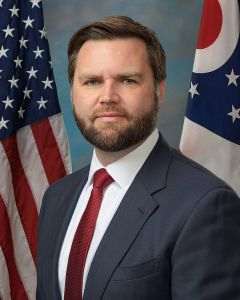• Lucian Anghel: "Many projects that we are working on will complete in the long run"
• Victor Cionga: "The new management shouldn't be seen as a universal panacea"
• BVB: New listings, the responsibility of the brokerages
The management of the Bucharest Stock Exchange yesterday presented the projects it is working on and the outlook for this year, but also felt the need to emphasize that some of the responsibility the development of the market, such as bringing new issuers on the BSE, lies with the brokers.
Lucian Anghel, the president of the BSE, has compared the activity of the BSE to that of the manager of a football field. According to Mr. Anghel, the manager's responsibilities are to make sure that the grass is mown, that the lines are painted properly, not to train the team or to win the games.
"We are working on many projects relevant for the future, but they will complete in the medium and long term", said Lucian Anghel, yesterday, in a press conference. He went on to say that these projects represent the foundation for the development of the capital market.
"The current state of the stock market is influenced by what has happened in the past", Lucian Anghel said.
Even though the expectations of the market were very big on last year's elections, Victor Cionga, the general manager of the BSE, considers that the new management of the BSE should not be viewed as a universal panacea. Moreover, in his opinions, the members of the current board of directors are underestimated.
"The activity of the management of the BSE isn't measured in weeks or months, but in years", said Victor Cionga, who added: "There is a pressure created by the huge expectations which the market has. We are trying to live up to expectations, but we need to do so objectively".
• Obtaining the rating of emerging market takes at least three years
Last year, the BSE conducted an analysis for the purpose of moving from the status of frontier market to that of emerging market, with a partnership with the London Stock Exchange in that regard.
According to Lucian Anghel, it takes at least three years to be promoted to the emerging market rank, therefore 2016 would be an optimistic deadline.
In order to meet this objective, the listing of Romgaz is necessary, according to the officials of the BSE.
"The administrative issues have already been dealt with", said Lucian Anghel, who went on to say that Romania getting the status of emerging market does not depend on the Stock Exchange alone.
At this moment, the BSE does not meet the size and liquidity requirements (at least three major companies, with a minimum market capitalization of 898 million dollars, a free-float capitalization of 449 million dollars and 15% ATVR -Annualized Traded Value Ratio liquidity), according to the BSE.
The Bucharest Stock Exchange presented the criteria for moving up to the emerging market status in detail, as well as its current stage, which it has been in since March 30th, 2011, before the "revolution" for changing the management.
• About the fee policy: "We are aware that we won't succeed in pleasing everybody"
The representatives of the BSE have presented the new pricing policy yesterday, which they will submit for the approval of the shareholders.
The BSE is considering the introduction of a fixed monthly fee of 3,500 lei for brokers and the cutting of the variable fees levied on the turnover.
"The main objectives of this pricing policy are normalcy and predictability", said Lucian Anghel. According to him, the target is to increase liquidity by 15% in the coming 12 months.
The BSE is proposing a reduction of the variable fee by 20%, followed by other reductions for turnovers which exceed 50 million lei. The Bucharest Stock Exchange is also considering incentives for market-makers.
"We are aware that we can't please everybody. We have a duty to shareholders, and this measure will be in their interest and in that of the stock market as well", said Lucian Anghel, who went on to say that the measure will allow a greater predictability of the revenues of the BSE.
Mr. Anghel said that he would like brokers to be more efficient and more active.
According to the representatives of the BSE, the weight of the fixed revenues in the total revenues of the BSE is just 0.2%, compared to 8.4% in Vienna or more in other countries.
The initiative of a new pricing policy has been harshly criticized by the Association of Brokers, which considers that it favors bigger brokers to the detriment of the smaller ones.
"It is a decision which we stand by", Lucian Anghel said yesterday.
According to Victor Cionga, the first 10% of the brokerages, account for 74% of the trades, and the last 10% - only 0.9%. "We want to accommodate the short and medium term interests of as varied types of players as possible and we want to encourage brokers to increase liquidity".
Among their activities conducted in 2012, the representatives of the BSE have mentioned the dialog and consultations with the market participants. However, the Association of Brokers and that of Stock Market investors have accused the management of the Bucharest Stock Exchange of lack of dialog and transparency, on various issues.
In reply, Victor Cionga said that intense debates took place at the BSE concerning the fee policy and that the BSE interacted with brokers - through direct meetings and through questionnaires. "The interests of brokerages are different, considering that each of them does between 0.1% and 24% of the total turnover. We had to accommodate the biggest part of these interests, which in our opinion we did. We need to take those measures which will provide the market with an opportunity for development in the long run".
About the conflict with the Association for the Protection of Stock Market Investors (concerning the proposal of the BSE to turn the Rasdaq market into an ATS), Victor Cionga said that the representatives of the Association did not honor the invitation of the Board of Directors of the BSE to have a dialog, nor did they initiate a dialog themselves.
• The fifth attempt at amending the Articles of Incorporation
For the General Meeting of Shareholders of March 13th, the BSE has also proposed the amendment of the Articles of Incorporation.
"It is a measure for development and it is the fifth attempt of the BSE to do that. The first four attempts have failed", said Lucian Anghel.
The BSE proposes reducing the minimum quorum requirements for the general shareholder meetings. Thus, if the proposal gets through, the extraordinary general shareholder meeting will need a quorum of at least 25% on the first summoning, and the General Extraordinary Shareholder Meeting will need at least 25% upon the first summoning and at least 20% on the second summoning. Currently, the General Extraordinary Shareholder Meeting requires a quorum of 50%, on the second summoning, which could very well represent a problem for March's meeting. In April 2012, the quorum for the General Extraordinary Shareholder Meeting was not met.
Also, the new articles of incorporation would increase the rights of the management of the BSE, as follows: the CEO would be allowed to conclude agreements of up to 250,000 Euros (compared to 125,000 Euros), and up to 1,000,000 Euros in the case of the Board of the Exchange (compared to 500,000 Euros previously).
The BSE also proposes the elimination of the provision that the president of the Association of Brokers would be appointed by default on the list of the candidates for the Board of Directors of the BSE, without having to be nominated separately.
• A new staff structure, layoffs are not excluded
The executive of the BSE has also been working on a new staff structure, which it will present to the Board of the BSE.
"A new staff structure is necessary because the current one has been created in a different development stage", said Victor Cionga. He explained that this does not mean a change in the number of employees, but he doesn't rule it out either.
In the market, there have been some criticisms concerning the high number of advisors hired by the BSE, after Victor Cionga took over the executive management of the BSE.
When asked to present his advisors, he has mentioned Dragoş Simion, Gabriela Onţică, Corina Mocanu and Liviu Moldovan and said that, as a new element, the BSE now has a head of human resources.
• The listings, the responsibility of brokers
It is a mistaken idea that that it is the BSE that should bring in new companies, Lucian Anghel considers.
"It is the brokers' job, we support them", he said, and he added: "We have done everything that depended on us, and what we will do in the future. We will stimulate brokers through the pricing policy and through incentives for bringing the companies over from the Rasdaq to the BSE. We will get involved, including financially, to support the listings".
The president of the BSE hopes that by the end of the year the stock exchange will also see a private IPO.
But the BSE is considering stimulating the companies to take an intermediate step towards getting listed, namely the bonds issue: "We broke the ice on corporate bonds with the bonds issue of GDF Suez Energy România. We are hoping to see many more projects such as this one. We did what was up to us, GDF could very well have done the issue in Luxemburg, but it is a reason to be happy that it chose to use the Romanian capital market".
So far, the Bucharest Stock Exchange consulted with four companies, in which private equity funds are shareholders, to get them to raise funding through the stock market, according to Victor Cionga.
This year, the Managing Director of the BSE expects the government to conduct the offers of Trangaz, Nuclearelectrica and Romgaz through the stock market.









































